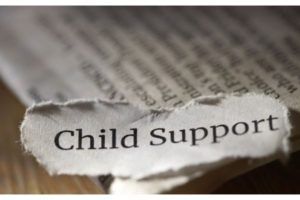Child Support and Bankruptcy
 Certain types of debt are not eligible for discharge. Congress decided these priority debts are designated too essential to be removed by a bankruptcy discharge. One of the most frequently discussed “priority debt” is child support. Child support obligations get special treatment during bankruptcy. No one can discharge child support arrears by filing for bankruptcy protection. You can get assistance catching up on past due child support using a Chapter 13 bankruptcy repayment plan.
Certain types of debt are not eligible for discharge. Congress decided these priority debts are designated too essential to be removed by a bankruptcy discharge. One of the most frequently discussed “priority debt” is child support. Child support obligations get special treatment during bankruptcy. No one can discharge child support arrears by filing for bankruptcy protection. You can get assistance catching up on past due child support using a Chapter 13 bankruptcy repayment plan.
How Does Bankruptcy Affect Child Support?
Again, child support is not dischargeable in bankruptcy. As a priority debt, it is simply not eligible. This means that when you file bankruptcy and go through the bankruptcy process, and receive your discharge of debt, you are still liable for all child support payments past and future. If you were behind on your child support payments before filing for bankruptcy, you are still required to pay the full amount due. If you are overwhelmed by debt and a significant portion of the debt is child support arrears, you may benefit more from filing Chapter 13 bankruptcy rather than Chapter 7. Filing for Chapter 13 allows you to work with the bankruptcy court to come up with a repayment plan that reorganizes your debts so you can catch up on your past-due child support.
As a priority debt, child support is also given priority over other types of debt in bankruptcy. During a Chapter 7 bankruptcy, priority debt is paid before other debts if there are any funds available after the bankruptcy trustee liquidates nonexempt assets. Child support is prioritized over other priority debts, being paid first even before other types of debt that are also designated as priority debts.
In a Chapter 13 bankruptcy child support also receives special treatment. All child support payments that were past due upon filing will be paid back in full through the repayment plan unless you already have a court order from your child support court for a longer time to cure your child support arrearage. The repayment plan cannot exceed five years, so an excessive amount of past-due child support can result in a high monthly payment. In addition, the bankruptcy filer is still required to continue making their expected monthly child support maintenance payments each month throughout the bankruptcy. Before receiving a Chapter 13 bankruptcy discharge, the bankruptcy petitioner must show the court that they are current on both alimony and child support payments.
Do you have questions about filing bankruptcy, or about which type of bankruptcy would be most beneficial for you? The experienced Tennessee and Georgia bankruptcy attorneys at Kenneth C. Rannick P.C. can help. We help good people through bad times every day, and we can help you, too.
The post Child Support and Bankruptcy appeared first on Kenneth C. Rannick, P.C..











